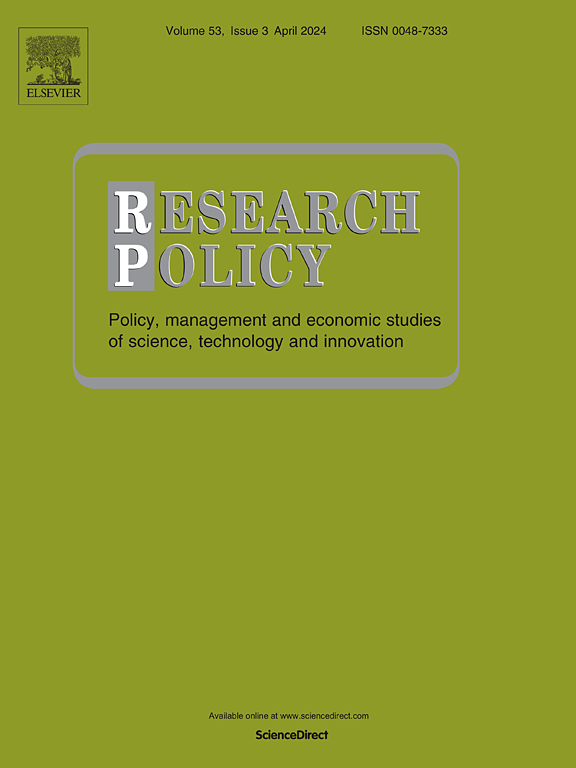全球协作:时区差异和引用
IF 8
1区 管理学
Q1 MANAGEMENT
引用次数: 0
摘要
本研究考察了同行评议文章的共同作者之间的时区差异如何影响引用。分析表明,即使在控制了物理距离、共同作者数量、国家数量、出版时间、期刊特定因素,以及在某些规范中控制了具有固定影响的共同作者团队特定因素之后,作者跨越更广时区的文章也获得了更多的引用。具体来说,作者之间的平均时区差异每增加一个小时,与样本平均值相比,被引次数就会增加4%。这种关系呈倒u形,其中5到6小时的时区差异,允许充分的重叠,产生最高的正系数(约15%的引用增加)。具体领域的结果表明,时区差异可以通过促进更快的合作和加速研究成果来改善发表结果的一种潜在机制。本文章由计算机程序翻译,如有差异,请以英文原文为准。
Collaboration across the globe: Time zone differences and citations
This research examines how time zone differences among co-authors of peer-reviewed articles influence citations. The analysis reveals that articles with authors spanning wider time zones receive more citations, even after controlling for physical distance, the number of co-authors, the number of countries, time since publication, journal-specific factors, and in some specifications also co-author team specific factors with fixed effects. Specifically, a one-hour increase in the average time zone difference between authors is associated with a 4% increase in citations compared to the sample mean. The relationship exhibits an inverted U-shape, where a time zone difference of 5 to 6 h, which allows for sufficient overlap, yields the highest positive coefficient (about 15% increase in citations). Field specific results indicate that one potential mechanism through which time zone differences can improve publication outcome is by facilitating faster collaboration and accelerating research outcomes.
求助全文
通过发布文献求助,成功后即可免费获取论文全文。
去求助
来源期刊

Research Policy
MANAGEMENT-
CiteScore
12.80
自引率
6.90%
发文量
182
期刊介绍:
Research Policy (RP) articles explore the interaction between innovation, technology, or research, and economic, social, political, and organizational processes, both empirically and theoretically. All RP papers are expected to provide insights with implications for policy or management.
Research Policy (RP) is a multidisciplinary journal focused on analyzing, understanding, and effectively addressing the challenges posed by innovation, technology, R&D, and science. This includes activities related to knowledge creation, diffusion, acquisition, and exploitation in the form of new or improved products, processes, or services, across economic, policy, management, organizational, and environmental dimensions.
 求助内容:
求助内容: 应助结果提醒方式:
应助结果提醒方式:


